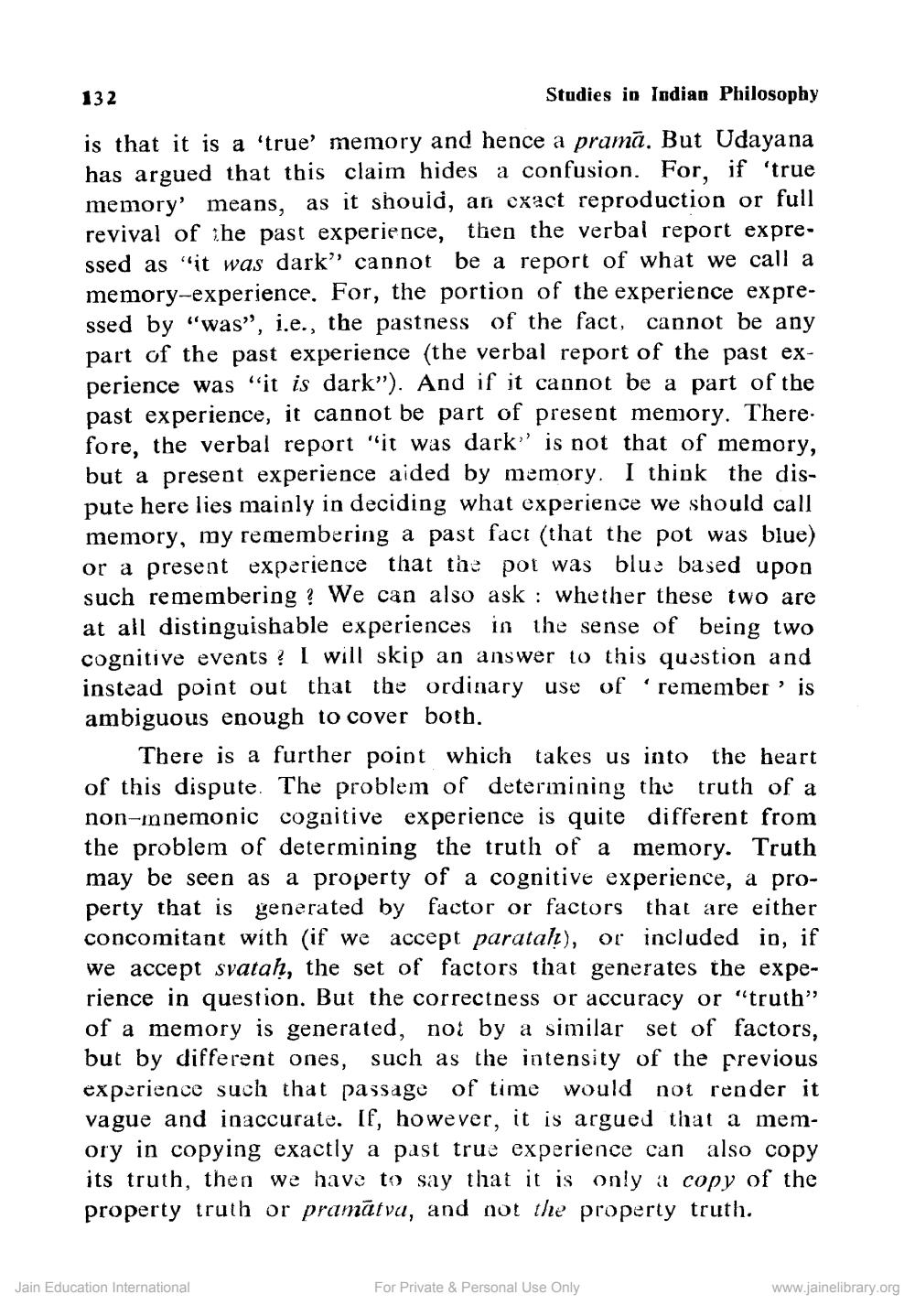________________
132
Studies in Indian Philosophy
is that it is a 'true' memory and hence a pramā. But Udayana has argued that this claim hides a confusion. For, if 'true memory' means, as it should, an exact reproduction or full revival of he past experience, then the verbal report expressed as "it was dark” cannot be a report of what we call a memory-experience. For, the portion of the experience expressed by "was", i.e., the pastness of the fact, cannot be any part of the past experience (the verbal report of the past experience was “it is dark"). And if it cannot be a part of the past experience, it cannot be part of present memory. There. fore, the verbal report "it was dark is not that of memory, but a present experience aided by memory. I think the dispute here lies mainly in deciding what experience we should call memory, my remembering a past fact (that the pot was blue) or a present experience that the pot was blue based upon such remembering ? We can also ask : whether these two are at all distinguishable experiences in the sense of being two cognitive events? I will skip an answer to this question and instead point out that the ordinary use of remember' is ambiguous enough to cover both.
There is a further point which takes us into the heart of this dispute. The problem of determining the truth of a non-mnemonic cognitive experience is quite different from the problem of determining the truth of a memory. Truth may be seen as a property of a cognitive experience, a property that is generated by factor or factors that are either concomitant with (if we accept paratal), or included in, if we accept svataḥ, the set of factors that generates the experience in question. But the correctness or accuracy or "truth” of a memory is generated, noi by a similar set of factors, but by different ones, such as the intensity of the previous experience such that passage of time would not render it vague and inaccurate. If, however, it is argued that a memory in copying exactly a past true experience can also copy its truth, then we have to say that it is only a copy of the property truth or pramātva, and not the property truth.
er both
Jain Education International
For Private & Personal Use Only
www.jainelibrary.org




